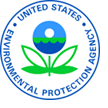Newsroom
All News Releases By Date
Student Team at University of Missouri-Columbia to Receive $14,874 to Study Treatment of Food Waste with Pig Manure
Release Date: 10/15/2014
Contact Information: Chris Whitley, 913-551-7394, [email protected]
Environmental News
FOR IMMEDIATE RELEASE
 (Lenexa, Kan., Oct. 15, 2014) - A student team at the University of Missouri-Columbia will receive $14,874 from EPA to study the feasibility of treating food waste mixed with swine manure and gather data from the process related to energy use, greenhouse gases and recovered nutrients.
(Lenexa, Kan., Oct. 15, 2014) - A student team at the University of Missouri-Columbia will receive $14,874 from EPA to study the feasibility of treating food waste mixed with swine manure and gather data from the process related to energy use, greenhouse gases and recovered nutrients.
The UMC project, “Feasibility and Life Cycle Assessment of Anaerobic Co-Digestion of Campus Food Waste and Swine Manure,” is one of only 42 student team projects funded this year in Phase I of EPA’s People, Prosperity and the Planet (P3) program, EPA headquarters officials announced today. The P3 program is designed to stimulate the development of projects and designs that deliver sustainable, alternative approaches to address environmental challenges.
“Each year, the projects and designs created by the P3 teams surpass expectations,” said Lek Kadeli, Acting Assistant Administrator for EPA’s Office of Research and Development. “These students are creating sustainable solutions for our everyday needs, addressing some of the United States’ most challenging environmental issues and helping create a vibrant, growing economy.”
UMC’s project will conduct trials of anaerobic digestion of various combined quantities of food waste and swine manure to identify the optimal mix. The student team will use results from the trials and values from peer-reviewed literature to conduct an engineering, economic and environmental life cycle assessment at a larger scale, with the ultimate goal of determining optimal ways of treating organic waste.
Past P3 teams have used their winning ideas to form small businesses and non-profit organizations. Environmental Fuel Research, a 2008 P3 winner from Drexel University, incorporated their grease waste-trap biofuel technology into a business enterprise and won a $100,000 EPA Small Business Innovation Research Phase I award this year. This woman-owned startup, headquartered in a historically underutilized business (HUB) zone to encourage economic development, has the potential to revolutionize domestic biodiesel capacity in the United States.
Since 2004, the P3 Program has provided funding to student teams in all 50 states and Puerto Rico, committing over $10 million to cutting-edge, sustainable projects designed by university students. Projects from this year’s teams include a new device for generating electricity from sunlight that could be used on exterior walls of buildings; extending the growing season for farmers by heating greenhouses with biomass; and reducing diesel emissions for vehicles while lowering costs and improving fuel economy.
Funding for the P3 projects is divided into two phases. In the first phase, student teams submit a proposal for a project, and if they are selected, they compete with other Phase I winners at the National Sustainable Design Expo in Washington, D.C. At the Expo, teams compete for Phase II funding of up to $75,000. This is the 11th year for the EPA P3 Program.
Learn more about the 2014 P3 Phase I Projects
Learn more about EPA’s P3 Program
Learn more about EPA Region 7
View all Region 7 news releases
Locate this and other Region 7 news items on the News Where You Live interactive map
Connect with EPA Region 7 on Facebook: www.facebook.com/eparegion7
Find us on Twitter @EPARegion7
 View selected historical press releases from 1970 to 1998 in the EPA History website.
View selected historical press releases from 1970 to 1998 in the EPA History website.

